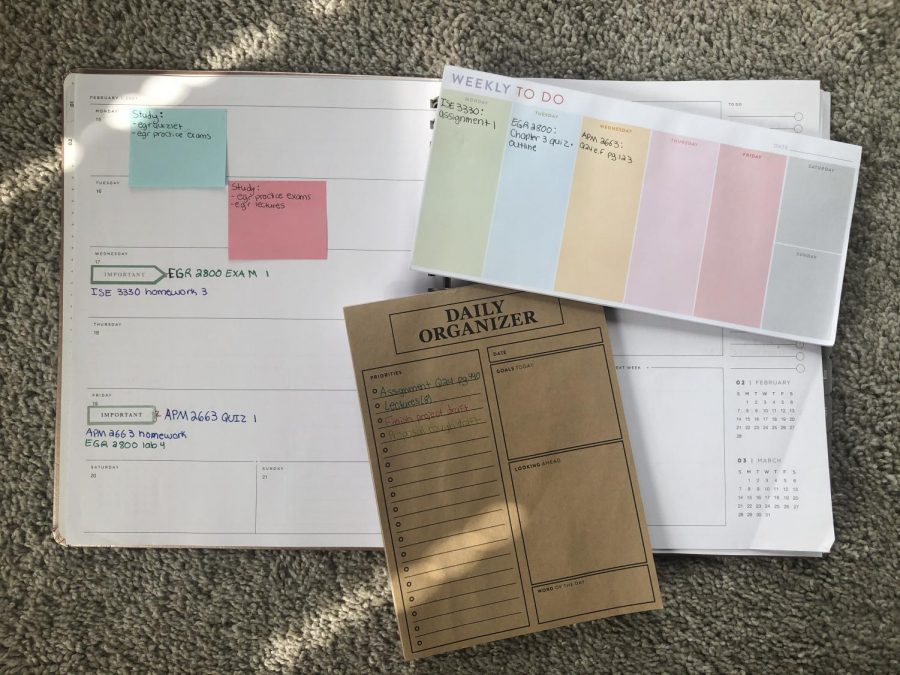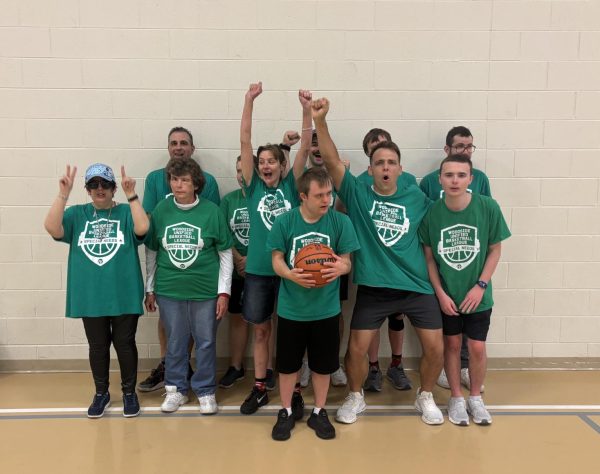Managing OCD during the pandemic
Kallen keeps numerous planners on hand at all times when she is doing school work from home. She has different styles and layouts so she can use whatever works best for her at that moment.
Everyone with Obsessive Compulsive Disorder has unique triggers, and representations of the disability. OCD is characterized by “repeated unwanted thoughts or sensations” and/or a pestering need to do something repetitively.
For junior Oakland University student Carly Kallen, 20, OCD manifests in numerous ways that interrupt her daily life. One of the most prominent obsessions she has is time management.
“I’m constantly thinking about the time and what I need to be doing,” she said. “Every Sunday, I plan out my entire week including any class meetings I have, appointments, work, and anything else. If anything gets changed, I get super frustrated and stressed out and can’t go on until there is a plan in place.
Kallen’s struggle with time management has been a problem for years, and has continued during the COVID-19 pandemic.
Regarding online school, she feels like she has more control over her plans than she did before the pandemic, which has been helpful with managing her stress.
“I mainly have asynchronous classes, so I can plan when I am going to watch the lecture videos based around my work schedule, which I set myself, she said. “My synchronous classes all record the lectures so I typically treat those as asynchronous if I have to, like if it helps make my weekly plan work.”
Despite this benefit of online schooling, Kallen feels that she has unique difficulties, due to her OCD.
For example, she recognized while every student is under more stress than usual right now, she knows that her stress can be more frequently debilitating.
She elaborated that one of her classes does not have a consistent posting schedule for class materials, so she has to check every day for lectures or worksheets to be posted.
This prevents her from scheduling it along with her other work for the week on Sunday, ultimately causing extreme stress and mental blocks until the material becomes available.
Another problem comes from needing everything written down in a planner, and when plans change and she has to cross something out, she struggles to continue using that particular planner.
“I have four planners right now, sometimes I have more,” she said. “If I am constantly reminded of a plan that had to change because it is crossed out on the page, I get frustrated. It’s a small thing, but it’s annoying. I have to switch planners every few days because of it.”
Kallen’s unique challenges with online schooling have made adjusting to the new environment difficult, but she does find comfort in having more control over her schedule.
She recognizes the difficulties she faces, but also that some of the characteristics of online schooling have helped her cope with her OCD.
She has also benefited from using the mental health services available on campus and recommends them to others struggling with mental illness through the campus organization, Actively Moving Forward.
“AMF is a national organization, and our branch is like a support group,” she said. “It’s for people struggling with the death or illness of a loved one, and a lot of mental illnesses can accompany that experience. I often tell our members about the counseling services through Graham Health Center because they are really beneficial.”
The organization, which Kallen is the president of, hosts biweekly virtual meetings on Wednesdays at 7:00 pm.
Ultimately, Kallen reflected on living with OCD and felt thankful that she has had a strong support group throughout the pandemic to help her adjust to online schooling.
“I make sure my family and friends know my triggers so they can help me when I am struggling,” she said. “If I kept it to myself, I think I would shut down.”






